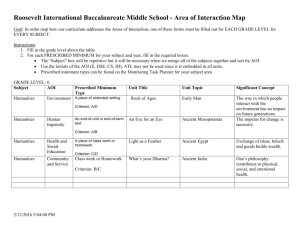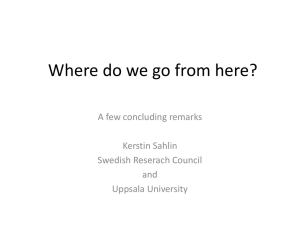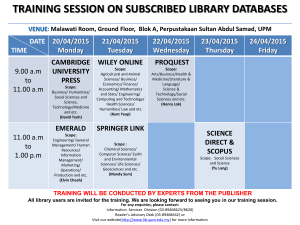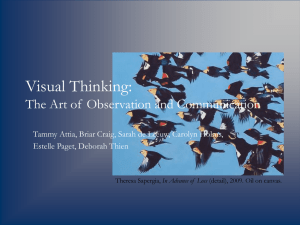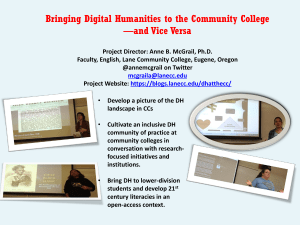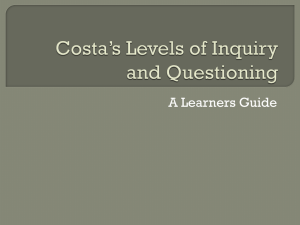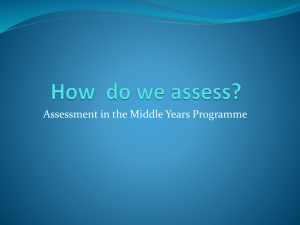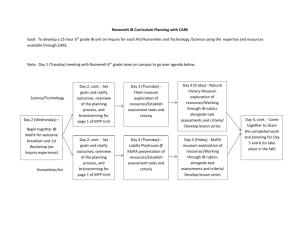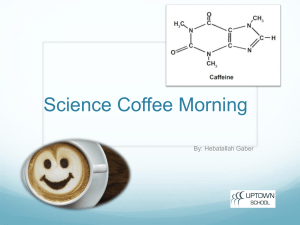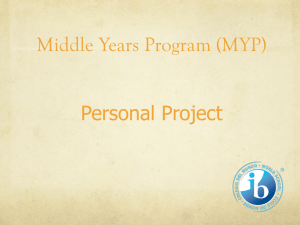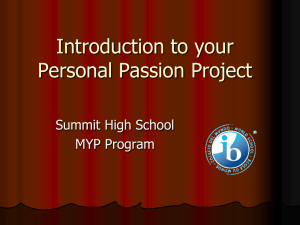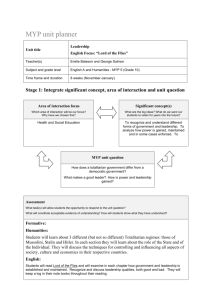Level 2 Training Summary
advertisement
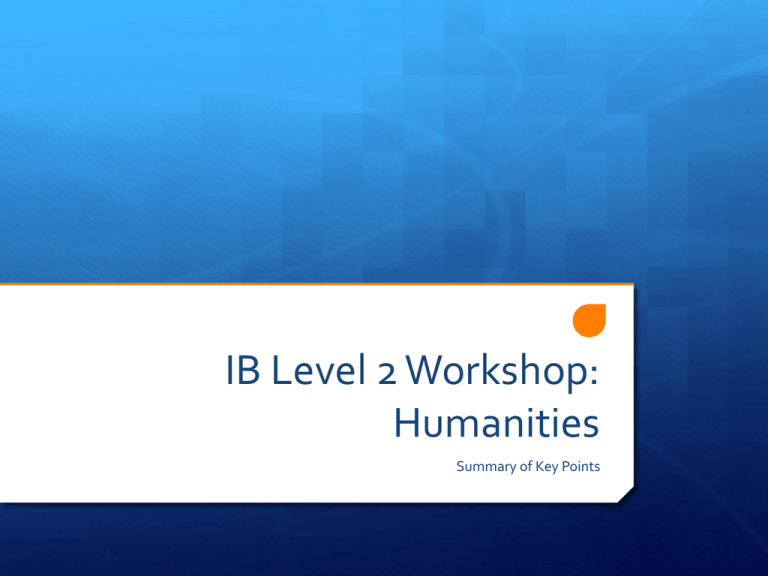
IB Level 2 Workshop: Humanities Summary of Key Points Module 1: Focus was the role of: IB Philosophy and implementation of MYP Ever changing, real world understanding and challenges of teaching Humanities in 21st Century Developing wider perspectives. Module 2 Conceptual Framework of Humanities Change, Time, Place & Space, Global Interactions, and Systems as an umbrella in Humanities. Relationship between AOI’s, key concepts and significant concepts. Module 2 Conceptual Framework Conceptual Lens: Concept: Concepts are: Abstract: Concepts stimulate higher level thinking by causing students to rise above the fact base to gain understanding. Timeless: Concepts remain constant even though the fact base that supports the concepts may change over time. Universal: Concepts can be applied across the fields of knowledge. H. Lynn Erickson, Concept Based Curriculum and Instruction A conceptual lens (focus concept) forces thinking to the integration level. Students see patterns and connections at a conceptual level as they relate the topic to the broader study framed by the lens. H. Lynn Erickson, Concept Based Curriculum and Instruction One or two word concepts are timeless, abstract or broad. Concepts may be very broad macroconcepts such as change, system, or interdependence; or they may be more topic specific, such as organism, habitat, or government. Concepts integrate thinking and allow for the transfer of knowledge. Concepts provides a relevant focus for content study. Concepts facilitate the transfer of knowledge. Concepts create a brain schema for processing new information. Structure of Knowledge True or False Concepts have a timeless nature, allowing for ongoing connections? Concepts are not the same as theories, principles and assumptions? Concepts should be revisited every year? Key concepts are only relevant within the subject groups? Significant concepts provide focus, and depth with the key concept? True or False Significant concepts give value to content or topics in a subject? Students must be given an opportunity to cover each key concept in each year of the MYP The four key concepts are the only ones that should be taught in a humanities course. Concepts should increase in complexity from MYP 1 to MYP 5. Key concepts are linked to significant concepts and unit questions. Module 3: Good planning leads to good results Objectives must be modified to age appropriate groups Incorporating the ATL’s into the Humanities Objectives. Developing the ATL expectation as per Interim Objectives (Grades 1, 3 and 5) Module 4 Clear expectations given to students lead to a better performance. Student centered instruction Importance of Criterion B, Investigation to drive Inquiry in Humanities classroom Interim criteria are essential for developing age appropriate tasks. CRITERION B: INVESTIGATION Transform a traditional based task into an inquiry based task, using Criterion B as a guide. An example could be: Original Task: Jenny must write an essay about child labour during the industrial revolution. What would your task look like when considering Criterion B, Investigation? Refer to your interim objectives relevant to Grade level. Module 5: Importance of peer collaboration and standardisation Relationship between stage 1 & 2 of the planner. Stage 1 – Trinity Stage 2: Incorporating Trinity into the lessons Importance of assessing process and product Module 6: Humanities implementation in schools. Section C of Principles to Practice Standard C1: Collaborative Planning Standard C2: Written Curriculum Standard C3: Teaching & Learning Standard C4: Assessment Developing growth for further action
